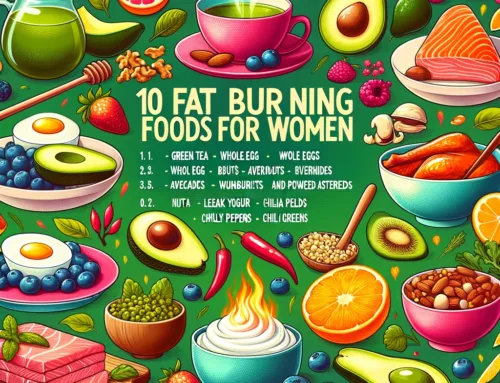
Intermittent Fasting (IF) is one of those eating protocols that is designed to mimic our ancestors’ eating habits that were maintained throughout the entire evolution of our species. The claim is that eating less frequently is actually more natural for us than eating 5 meals. Logically it makes sense, with all this hunting and gathering we wouldn’t have much time to take a break for a quick bite every 3 hours (I guess). The IF’s advocates list numerous benefits, from increased growth hormone (causes cell rejuvenation) and reduced risk of cancer, to healthy weight loss and increases in strength, alertness and brain function. In fact there are so many benefits, that Ana and I were sold on trying it out.
We decided to give it a go for 2 months and see how we feel. What we found out was that it did work great for me, personally, but Ana had a very opposite experience. In fact, she had to quit it midway. After doing some research, we found out that IF may not be the best alternative for women, while it works wonders for guys.
Is IF good for you?
After rummaging through tons of articles and YouTube videos we were set on an exciting journey of eating tons of food for 8 hours a day and fast for the other 16. Honestly, I was unable to find any drawbacks to this protocol, which meant that either there was not enough research done, or that it was absolutely awesome. I was hoping for the latter.
Aside from the initial discomfort with eating 3 humongous meals (1350 calories per meal for me personally) within such a small amount of time, our results were completely different. I did not experience any extreme hunger issues, lost some body fat and generally felt great. The 3 big meals stopped being a problem after a couple of weeks and I saved a lot of time in the morning from not making breakfast. Can’t say that I experienced any crazy strength or muscle mass gains (maybe because I stuck to it for only 2 months), but I did get a little more alert.
While I was joyfully embracing my paleolithic eating habits, Ana was having a completely different experience. She would get really (I mean REALLY) hungry in the mornings and would barely hang on until her first meal at 12pm. However, her body would not adjust to eating larger amounts of food, like mine did and she would struggle to consume her entire calorie intake. Basically, she would end up not eating enough calories, which made her more and more tired every day. When she would eat the big meals, it would make her really tired, so the middle of the day became a write off. Also, while being a very stable girl, she began getting mood swings, which never had happened before. From a physical point of view, her weight went up, along with the body fat, the performance at the gym had gone down and she was feeling lethargic and “out of it” for most of the day.
Now, some readers would probably say that we did something wrong. I can assure you that we did all the calculations right and ate healthy, clean and wholesome foods throughout the entire experiment. Both of us have been working in the fitness industry for years and knew exactly what we were doing. So why were the results so different?
<strong>The side effects of IF on women</strong>
After a month on the IF protocol Ana had to come stop her experiment. She went back to eating her regular 5 meals a day and within the first week, she went back to her regular, had more energy and felt much better. To find out what was going on, we did some more research and found out that while very healthy for men, Intermittent Fasting can have a reverse effect on women. Even though there weren’t a lot of studies done, there was some scientific evidence that IF should be avoided by women.
One study was done on rats (I “know rats are not people”, but most supplements are tested on rats and everyone is OK with it), where the subjects were put on the Intermittent Fasting protocol. Males showed no side effects and were alert and full of energy. But the female subjects showed a heightened stress response and a shutdown of their reproductive system.
<a style=”color: #eb4d94;” href=”http://ajcn.nutrition.org/content/90/5/1138.full” target=”_blank”>Another study</a> used people as subjects. It showed that there was no increase in female subjects’ metabolism, while males experienced a positive improvement in their metabolic function.
The benefits of the Intermittent Fasting may sound good, but from our research and personal experience it seems like it can do more harm than good to women adopting this way of eating and can affect not only their mood and productivity, but can also diminish their weight loss process.
But before I tell you about it, I want you to read the following disclaimer that applies to all supplements. Here we go:
“Do you want to lose the stubborn belly fat without exercising and eating healthy, just by taking one pill a day? If you answered yes, then this supplement is NOT for you. Yes, there are supplements that will HELP you achieve your goals, but that’s all that supplements do – they supplement healthy nutritional habits and vigorous exercise. If supplements actually did what their manufacturers professed, then they would be called wonder-ments.”
So no, there is no supplement that burns fat, but there are supplements that HELP you do that, when all the other elements of fitness (healthy diet, regular exercise, balanced lifestyle and stress reduction techniques) are present.
One of the few supplements I trust is Rhodiola Rosea (commonly known as just Rhodiola). This plant is commonly found in Asia and Eastern Europe and grows at high altitudes. It has been known to increase brain function and increase athletic performance for years (yay! You will be able to do algebra during your workouts!). But, what is more exciting, is that Rhodiola belongs to a group of plants called adaptogens. Adaptogens reduce stress in the human body and Rhodiola is one of the most effective ones!
Elevation of stress hormones, such as cortisol and adrenaline has unfortunately become a common part of our busy lives. When these hormones are elevated for long periods of time, the body starts storing energy in the form of fat “just in case” to conserve as much calories as possible. This is our body’s protective mechanism and there is no other way around it but finding an effective technique to reduce stress.
Rhodiola is great at ridding the body of belly fat, as it reduces cortisol and adrenaline. Furthermore, Rhodiola contains a compound called Rosavin, which triggers hormone-sensitive lipase, an enzyme that helps breaking down the fat in the stomach area. This, along with the stress reducing properties, makes Rhodiola a unique and effective supplement that will help you burn belly fat effectively!
Sources:
- Zakir Ramazanov, Z. et al. (1999) “New secrets of effective natural stress and weight management, using Rhodiola rosea and Rhodendron caucasicum” ATN/Safe Goods Publishing, CT.
- De Bock K, Eijnde BO, Ramaekers M, Hespel P. Acute Rhodiola rosea intake can improve endurance exercise performance. Int J Sport Nutr Exerc Metab. 2004 Jun;14(3):298-307.
- Abidov M, Crendal F, Grachev S, Seifulla R, Ziegenfuss T. Effect of extracts from Rhodiola rosea and Rhodiola crenulata (Crassulaceae) roots on ATP content in mitochondria of skeletal muscles. Bull Exp Biol Med. 2003 Dec;136(6):585-7.



